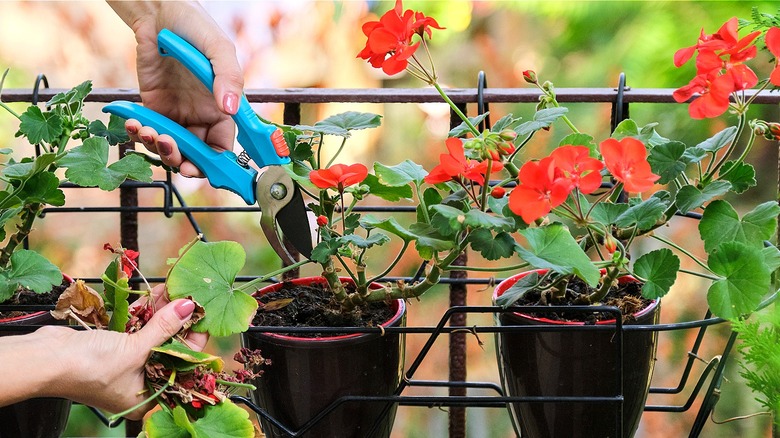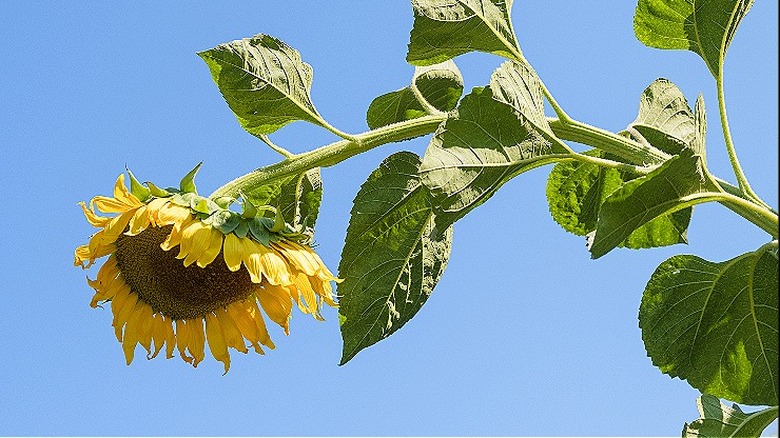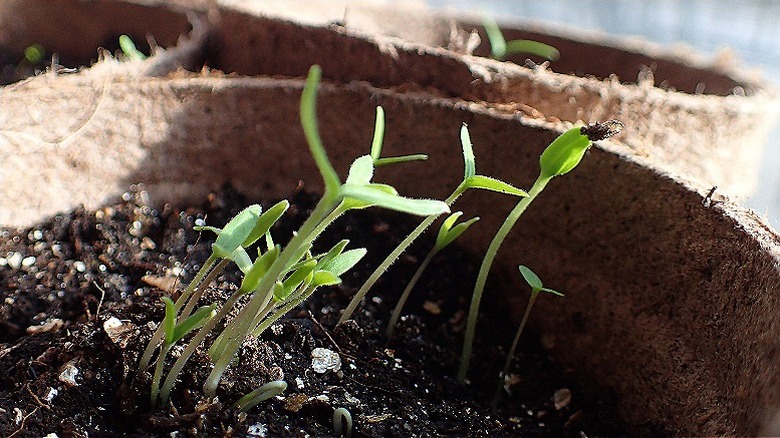What Your Garden Flowers' Crooked Stems Are Trying To Tell You
Every gardener has encountered a plant that has a compromised stem from time to time. Whether it tilts to one side or is cracked or crooked, an impaired stem can tell you a lot about a plant's state of health. While there can be myriad issues, the most widely seen problems when it comes to stems and how they grow are related to stress and the sun. In the former case, like people, plants can only hold on so long when they don't get what they need in terms of basic care. When this happens, this stress can manifest in a physical problem like a crooked stem.
In addition to the stem being a plant's foundation, though, it also enables nutrients, water, and minerals to get from the roots to the leaves. This is vital for photosynthesis. Besides that, the stem stores food and water, so a crooked plant stem may compromise these processes. If you have crooked stems, there are some precautions you can take to help correct the problem and also help avoid it next season.
Your flowering plants may be stressed
Since stems are so vital to a plant, they've largely evolved to be relatively flexible in order to withstand bending and other stresses. This flexibility allows plants to survive in a variety of conditions, but sometimes environmental agents may cause mechanical stress. Strong winds, heavy rain, and animals can cause plant stems to bend or even break. Similarly, if a plant doesn't get enough water, its stems may wilt. Further, sometimes, plant stems can become crooked from disease, which can also cause stems to weaken and bend.
In some cases, plant stems can bend from a combination of stress factors. A plant that's both water-stressed and exposed to strong winds, for example, may be more likely to bend or break. The first thing to do when you see crooked stems is to assess whether they're getting the right amount of water and nutrients they need and if they've been exposed to extreme temperatures.
Stems bend to the light
If you do an audit and summarize your plants are getting the right amount of water and haven't been bent by environmental conditions, there may be another answer. What's more, the cause may not be a problem at all; it may actually be your plants' strong will to survive and thrive. Specifically, a plant's stem could be crooked because it's attempting to find the sun.
A plant will naturally grow toward the sun and this is known as phototropism. Plants need the sun to create food. If a plant is left too long in one position, it'll grow toward the area that gets the most sun each day. A quick fix for a potted plant is simply to turn it around regularly so it gets an even distribution of light and sun. Each time you water your plant, give it a quarter turn.
Even better, find an area where the plant can get overhead sunlight. The same goes for plants that grow in gardens. Try to plant them where they get an even distribution and don't have to bend one way or another in order to reach the sun and get maximum sunlight.


